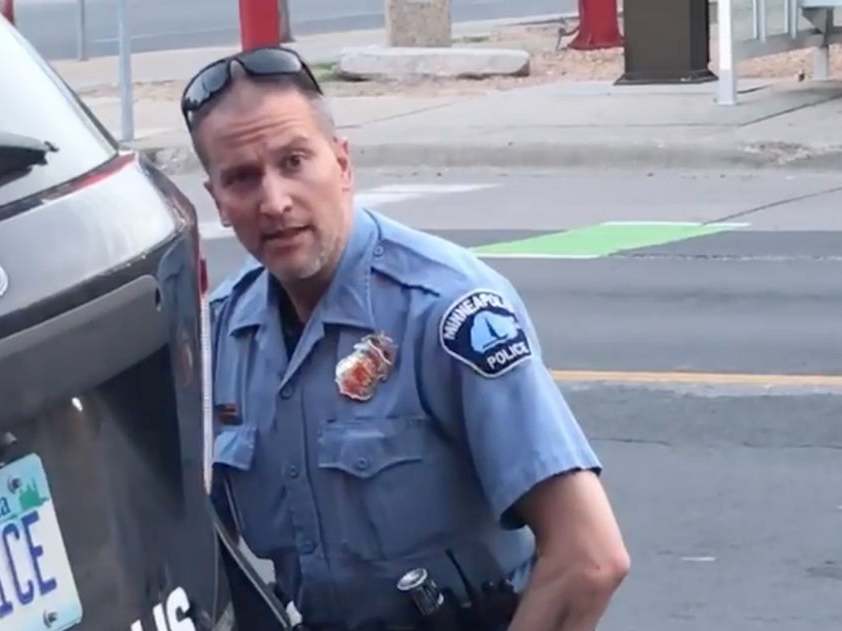Derek Chauvin allowed to live outside Minnesota for his own safety ahead of trial for George Floyd killing
Derek Chauvin was released on Wednesday on a $1 million bail to await trial for George Floyd’s killing, and a judge on Thursday allowed him to leave Minnesota

Your support helps us to tell the story
From reproductive rights to climate change to Big Tech, The Independent is on the ground when the story is developing. Whether it's investigating the financials of Elon Musk's pro-Trump PAC or producing our latest documentary, 'The A Word', which shines a light on the American women fighting for reproductive rights, we know how important it is to parse out the facts from the messaging.
At such a critical moment in US history, we need reporters on the ground. Your donation allows us to keep sending journalists to speak to both sides of the story.
The Independent is trusted by Americans across the entire political spectrum. And unlike many other quality news outlets, we choose not to lock Americans out of our reporting and analysis with paywalls. We believe quality journalism should be available to everyone, paid for by those who can afford it.
Your support makes all the difference.The former police officer charged with murder over the death of George Floyd will be allowed to leave Minnesota ahead of his trial, a judge has ruled, due to threats to his safety.
Derek Chauvin, 44, was released on a $1 million bond on Wednesday - the last of the four officers charged in connection with the May 25 killing to secure his release.
His release sparked new protests across the Twin Cities on Wednesday and Thursday, and Governor Tim Walz called up the National Guard and deployed State Patrol officers to Minneapolis. Fifty people were arrested in Minneapolis on Wednesday night.
On Thursday Chauvin’s lawyers successfully argued that his bail conditions be adjusted, so he can await the trial outside the state.
Judge Peter A. Cahill, who is overseeing the Hennepin County criminal case into Floyd’s killing, cited “evidence supporting safety conditions that have arisen”, without providing details of the threats.
Cahill agreed that Chauvin be allowed to leave Minnesota if he chooses and base himself in Iowa, South Dakota or Wisconsin.
He will have to provide the address to the court, prosecutors and law enforcement officials who will share the information on a “need to know basis” only. The court record will reflect that the “defendant has no permanent address,” Cahill ruled.
He must surrender his passport and obtain a mobile phone, and cannot possess a firearm. He must attend all court hearings.
Chauvin, who knelt on Floyd’s neck for almost nine minutes as the 46-year-old lost consciousness, was fired by Minneapolis police department in May.
A 19-year veteran of the force, Chauvin is facing second-degree murder and manslaughter charges in Floyd’s death.
Three other officers on the scene — J. Alexander Kueng, Thomas Lane and Tou Thao — are charged with aiding and abetting.
The four men are beginning to point fingers at each other, through their lawyers, as Cahill weighs up whether all four former officers will be tried jointly.
A tentative trial date has been set for March.
Last month, at a tense pretrial hearing, lawyers argued that the trial venue should be changed, claiming that an impartial jury could not be found in Minnepolis.
Following the hearing, which was unresolved, protesters confronted three of the former officers — Kueng, Lane and Thao — and their attorneys outside the courthouse, some chanting “murderer!” at the officers while pursuing them for several blocks as they walked to their cars.
Thomas Plunkett, an attorney for Kueng, said that protesters had inflicted $2,000 worth of damage on the vehicle that he, Kueng, Lane and his attorney Earl Gray had ridden in and included a copy of the Minneapolis police report he filed about the incident.
Plunkett, in a court filing, claimed that a protester physically assaulted Lane and Gray, and said the incident proved that the trial needed to be moved.
“No recognizable plan was in place in advance of the hearing to assure the safe and orderly entry of co-defendants or co-counsel into the courthouse,” Plunkett wrote, noting that “the interests of justice would be best served” by granting a change of venue.


Join our commenting forum
Join thought-provoking conversations, follow other Independent readers and see their replies
Comments